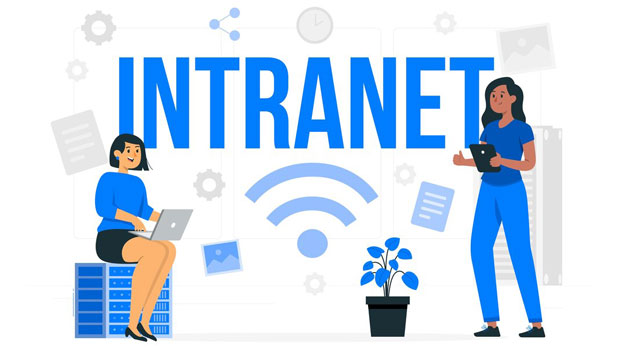When evaluating proxy services, both PYPROXY and KProxy stand out as popular choices, offering distinct features that cater to different user needs. This article aims to conduct a detailed price-performance comparison between PyProxy and KProxy, focusing on factors such as pricing, features, reliability, speed, security, and overall value. The goal is to provide insights into which service offers the best value based on various customer needs, helping users make an informed decision based on their specific requirements. Introduction to Proxy ServicesProxy services act as intermediaries between users and the internet, allowing individuals to access websites and content while maintaining anonymity and bypassing geographical restrictions. There are various types of proxies, such as residential proxies, data center proxies, and mobile proxies, each serving different purposes. Among the many proxy providers available, PyProxy and KProxy have gained significant attention due to their unique offerings and competitive pricing. This comparison will help users understand which service provides the best overall value based on their particular needs, whether they are looking for secure browsing, better speed, or an affordable price.Pricing ComparisonPyProxy PricingPyProxy’s pricing structure is relatively straightforward and flexible. They offer both monthly and annual plans, with varying price points depending on the level of service and features required. Users can access different tiers that range from basic offerings to more advanced proxy options that come with higher speeds, better security, and more robust server availability. Their pricing is competitive within the proxy service market, with options to suit individuals and businesses of all sizes.KProxy PricingKProxy’s pricing model is also quite competitive, offering both free and paid plans. The free plan, while functional, has limitations in terms of speed, server access, and connection stability. The premium paid plans come with a range of enhancements, including faster speeds and more server options, which is ideal for users who require more reliable and high-performing proxies. Overall, KProxy provides a more affordable entry-level option for users looking to access proxy services without a significant upfront investment.Performance and SpeedPyProxy PerformancePyProxy’s performance is generally strong, especially for paid plans. The service boasts fast connection speeds and minimal downtime, even with more complex usage scenarios like streaming or large-scale data scraping. PyProxy’s infrastructure is optimized for speed, ensuring that users experience minimal lag and stable connections. However, depending on the plan chosen, some users on lower-tier plans may experience slower speeds or higher latency compared to premium plans.KProxy PerformanceKProxy also delivers reliable performance, particularly on its premium plans. The free plan, however, is significantly slower and may not be suitable for high-demand tasks. Users often report that the paid plans offer improved speeds and a more stable connection, making it a solid choice for those needing proxies for everyday browsing or light data scraping. KProxy’s infrastructure might not be as robust as PyProxy’s for more demanding tasks, but for general use, it performs adequately.Security and AnonymityPyProxy SecuritySecurity is one of PyProxy’s strong points. The service incorporates encryption and advanced security protocols to ensure that users’ data remains private and safe from external threats. PyProxy’s high-security features are especially valuable for individuals and businesses that handle sensitive information or require anonymity for browsing and data collection. Additionally, PyProxy offers dedicated IP addresses, enhancing both security and the ability to avoid IP bans.KProxy SecurityKProxy also offers a good level of security, particularly for users on paid plans. The free plan does not include as many security features, making it less reliable for tasks that require higher anonymity levels. However, paid KProxy plans ensure secure browsing with strong encryption, providing decent privacy protection for users. Despite being competitive in this area, KProxy does not offer the same depth of security features as PyProxy, which may be a consideration for users requiring more comprehensive protection.Server Availability and Global ReachPyProxy Server CoveragePyProxy provides a broad selection of servers worldwide, allowing users to access content from almost any region without encountering significant geographical limitations. This extensive server coverage makes PyProxy an ideal choice for users who need consistent access to various global markets or websites. The reliability of PyProxy’s servers is generally high, with few reports of downtime.KProxy Server CoverageKProxy has a smaller selection of servers compared to PyProxy, but still covers major regions like North America, Europe, and parts of Asia. While not as extensive as PyProxy, the server coverage provided by KProxy is sufficient for casual users who do not require extensive global access. However, this could limit the effectiveness of KProxy for users who need a broader server selection or need to access specific countries or regions not covered by KProxy.Customer Support and User ExperiencePyProxy Customer SupportPyProxy excels in customer support, offering a range of support channels including email, live chat, and a comprehensive knowledge base. The response times are generally quick, and the support team is knowledgeable, assisting with any issues users might face. PyProxy’s interface is also user-friendly, making it easy for both beginners and experienced users to navigate and configure their proxies.KProxy Customer SupportKProxy also provides solid customer support, but it tends to rely more on email-based support rather than real-time channels like live chat. While the support team is responsive, users might experience longer wait times compared to PyProxy’s more immediate response methods. KProxy’s interface is relatively simple to use, but advanced users might find it lacks some customization features available in PyProxy’s platform.Which Proxy Service Offers Better Value?PyProxy's Overall ValueFor users seeking high performance, robust security, and a wide range of features, PyProxy represents a better overall value. Its higher pricing is justified by the reliability, speed, security, and global coverage it offers, making it an ideal choice for businesses and users who require dependable, high-performance proxy services.KProxy's Overall ValueKProxy is an excellent choice for casual users who need a budget-friendly proxy service without requiring top-tier performance. Its free plan offers a functional entry point for individuals who need basic proxy access, and its paid plans provide a good balance between affordability and performance. While KProxy may not offer the same level of security, speed, or server coverage as PyProxy, its pricing and ease of use make it a valuable option for more casual or light users.In conclusion, both PyProxy and KProxy provide valuable proxy services, each catering to different user needs. PyProxy stands out in terms of performance, security, and global reach, making it ideal for users who prioritize these factors. On the other hand, KProxy offers a more budget-friendly option for those who do not require the highest speeds or most advanced features. Ultimately, the choice between PyProxy and KProxy depends on the user’s specific requirements, budget, and desired level of performance.
Sep 03, 2025



































































